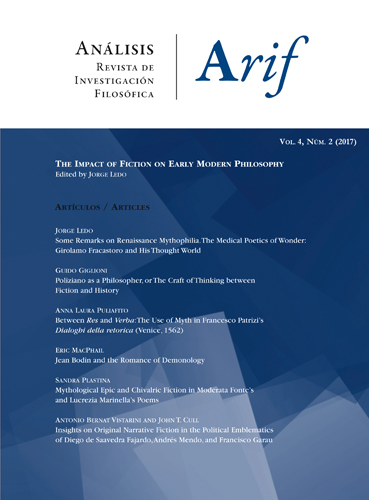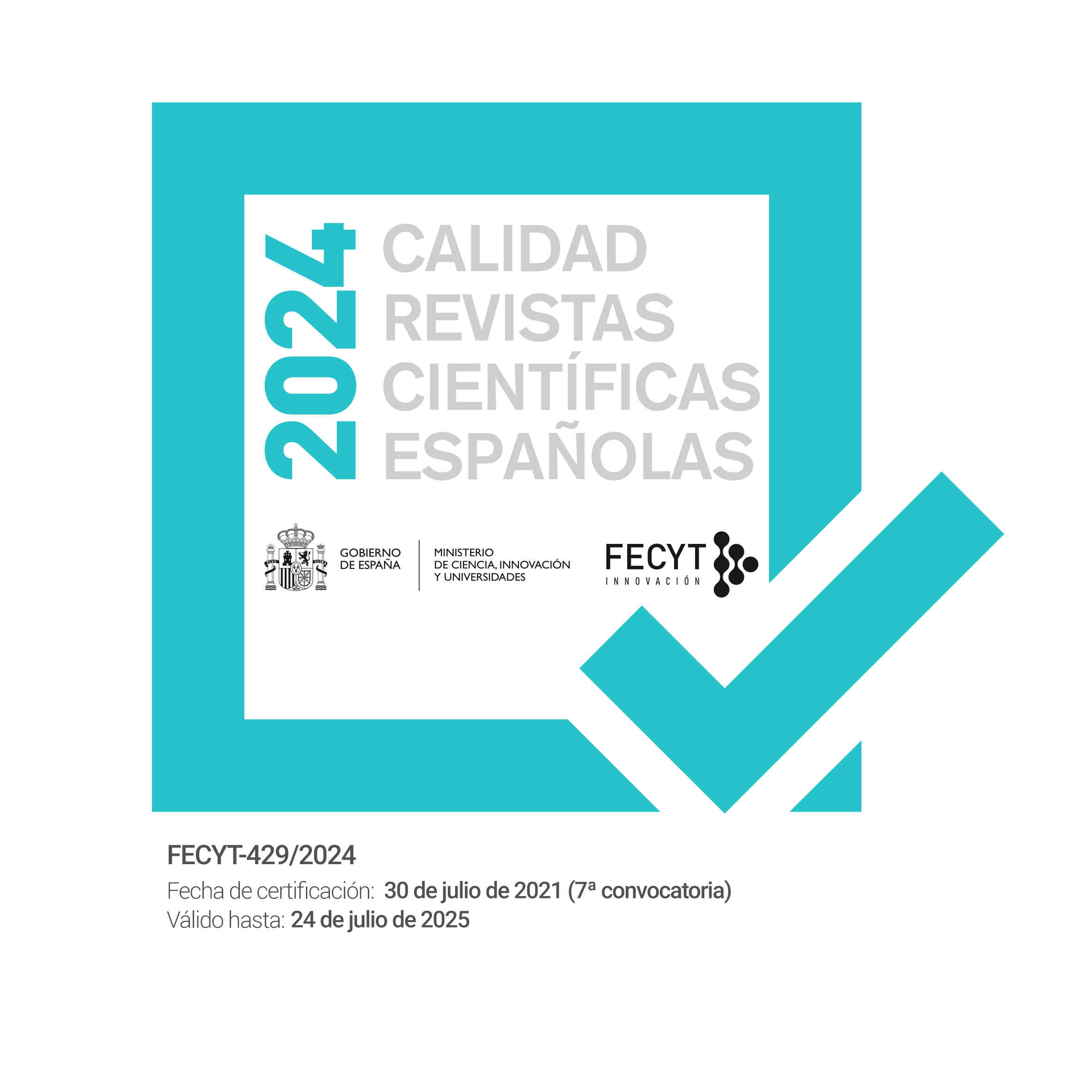Poliziano as a Philosopher, or The Craft of Thinking between Fiction and History
DOI:
https://doi.org/10.26754/ojs_arif/a.rif.201722471Resumen
By concentrating on the work of Angelo Poliziano (1454–1494), this article explores the questions about whether and to what extent fictional accounts of reality may contribute to the crafting of rational arguments. I will present Poliziano’s contribution to this debate as deeply embedded in a culture of verbal and visual mediation, as was characteristic of Renaissance philosophy. At a time and in a place (fifteenth-century Florence) where philosophy was open to forms of experimentation involving words and images, Poliziano was keen to defend the legacy of poetry, rhetoric and history within the tradition of philosophical inquiries, and more specifically, the role of fiction in shaping arguments and tools of analytical scrutiny. From an interpretative point of view, one of the guiding lines in my analysis will be the category known in contemporary philosophy as moral imagination, that is, the idea that the imagination has the ability to transcend the limitations of individual desire and create the conditions for a broader engagement with reality. It is a type of moral abstraction that allows ideals and values to become sufficiently general to be shared by communities (synchronically) and handed down by traditions (diachronically). It will be apparent how in Poliziano’s account fiction, understood as the narrative element invigorating rational argument, expands the scope of imaginable possibilities while acknowledging the role played by the many constraints of history (res) and persuasion (fides).
Keywords: fiction, history, res, moral imagination, Homer, Horace, Angelo Poliziano, Renaissance philosophy
Descargas
Descargas
Publicado
Número
Sección
Licencia
Los autores que publican en esta revista están de acuerdo con los siguientes términos: los autores conservan los derechos de autor y garantizan a la revista el derecho de ser la primera publicación del trabajo al igual que licenciado bajo una Creative Commons Reconocimiento-No Comercial-Sin Obra Derivada 4.0 (CC BY-NC-ND) que permite a otros compartir el trabajo con un reconocimiento de la autoría del trabajo y la publicación inicial en esta revista. Los autores pueden establecer por separado acuerdos adicionales para la distribución no exclusiva de la versión de la obra publicada en la revista (por ejemplo, situarlo en un repositorio institucional o publicarlo en un libro), con un reconocimiento de su publicación inicial en esta revista.






